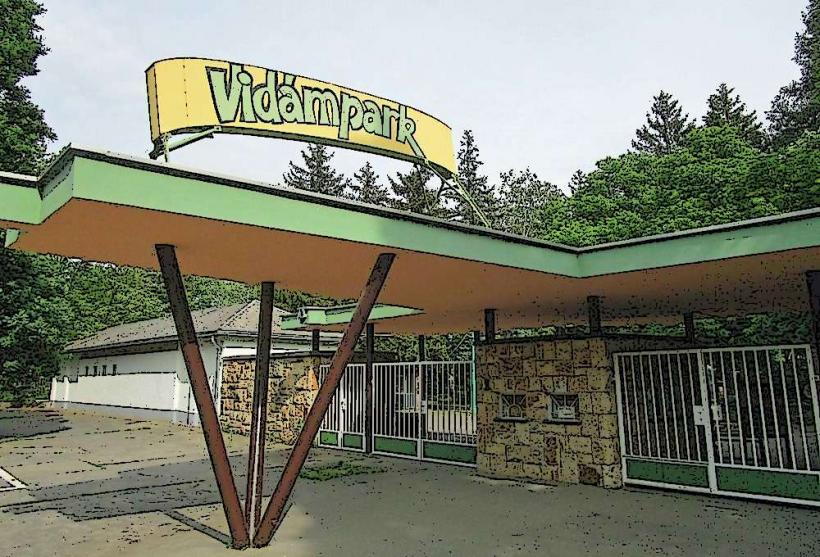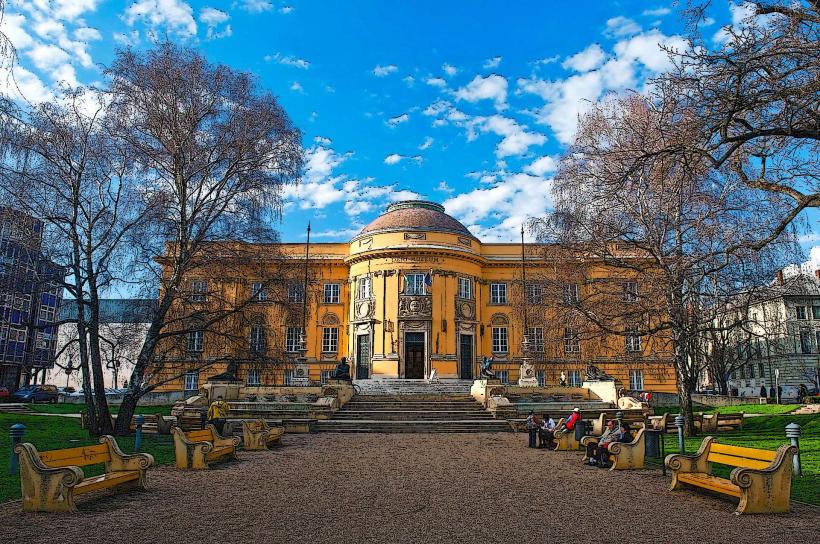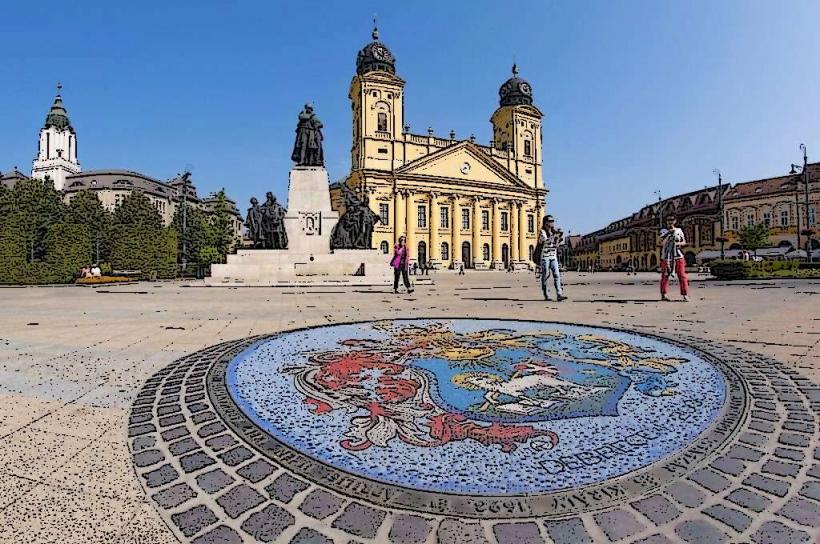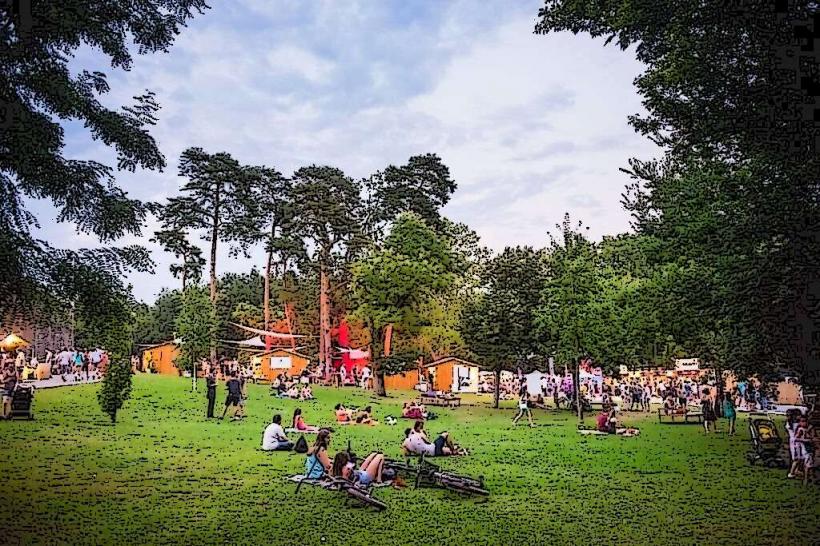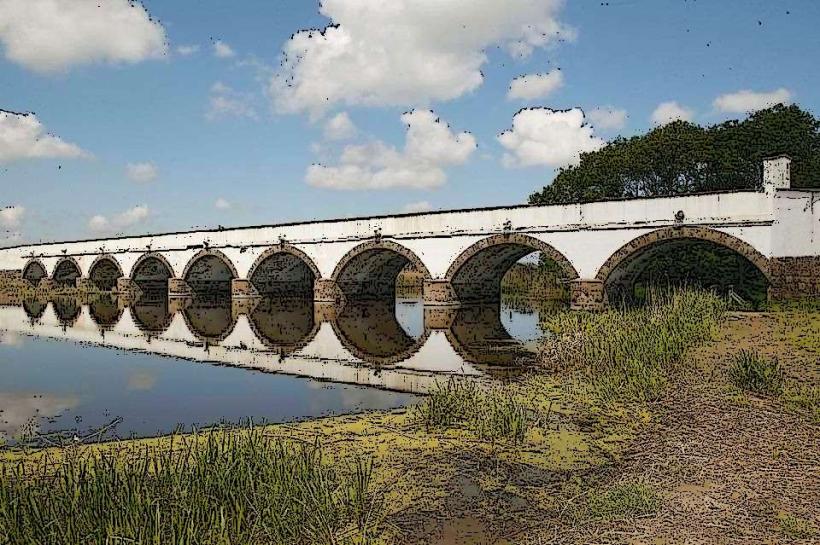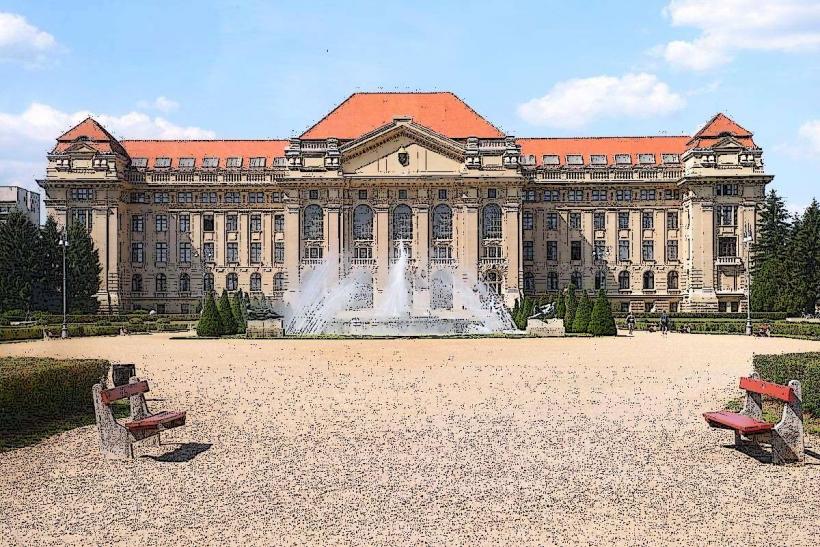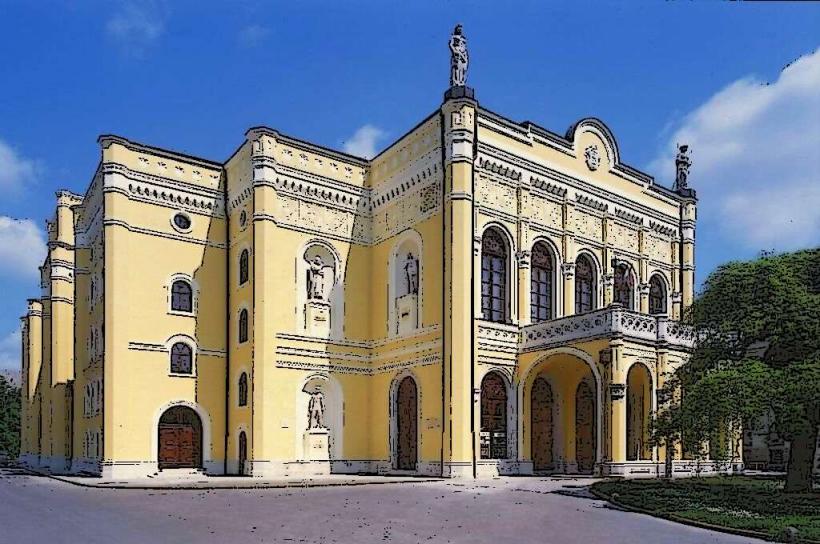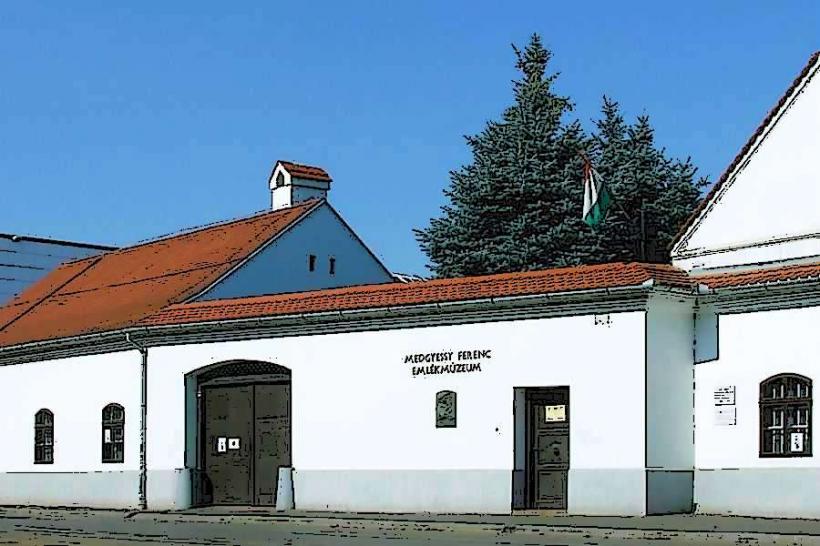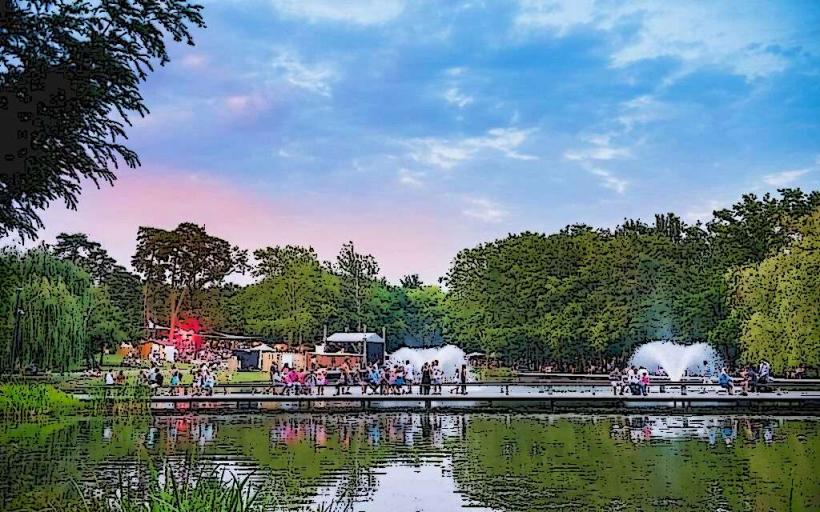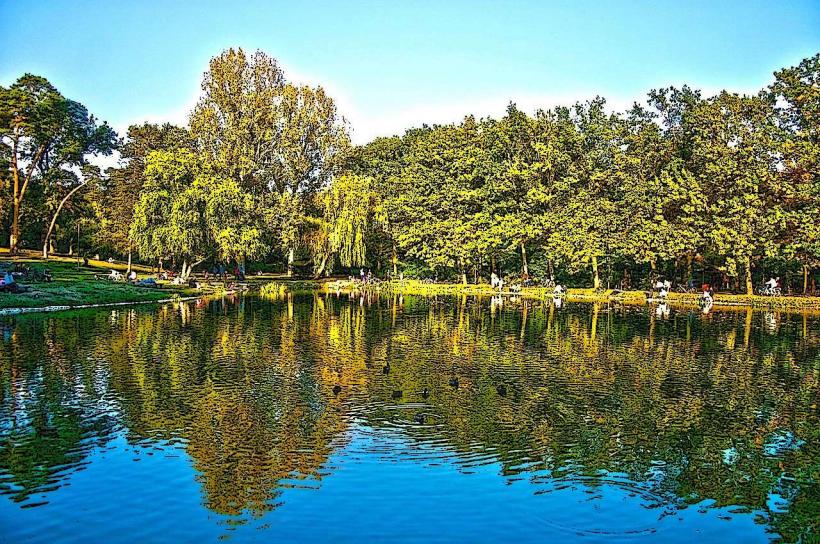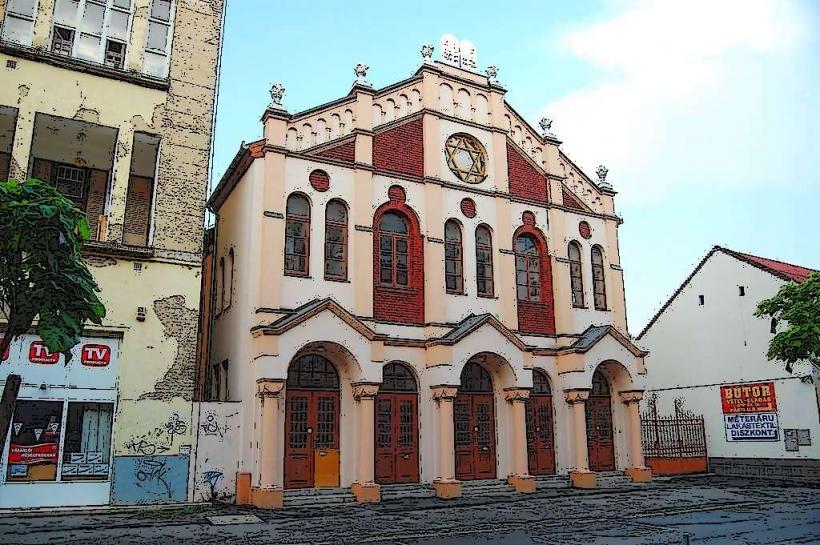Information
City: DebrecenCountry: Hungary
Continent: Europe
Debrecen is Hungary’s second-largest city, located in the eastern part of the country. It is known for its rich history, cultural significance, and vibrant academic life. Debrecen is often referred to as the "Calvinist Rome" because of its importance to Hungarian Protestantism, as well as being an economic and cultural hub for the region. Here's an in-depth look at the city:
History
Debrecen has a long and storied history, dating back to its earliest records in the 13th century. During the medieval period, it was an important town, but it rose to national prominence in the 16th and 17th centuries, particularly during the Reformation. The city became a center for Hungarian Calvinism, with many Hungarian Protestants seeking refuge there during the Ottoman occupation of Hungary.
Debrecen played a crucial role during the Hungarian Revolution of 1848, as it served as the temporary capital of Hungary when the Hungarian National Assembly convened there. The city's central location and political importance were further highlighted during the Treaty of Trianon after World War I, when Hungary’s territory was greatly reduced.
Geography
Debrecen is located in the Great Hungarian Plain (Alföld), which gives it a unique landscape of wide-open spaces, agricultural fields, and rich soil. The city lies along the Kölesd and Tisza Rivers, though it is somewhat distant from the Danube, which is a more significant river in the country. The surrounding region is primarily flat, with little to no major mountain ranges.
Cultural and Religious Significance
Debrecen has often been described as the cultural heart of eastern Hungary. It is a center for Protestantism in Hungary, particularly Calvinism, and is home to the Reformed Great Church of Debrecen, one of the city’s most iconic landmarks. This large Protestant church has been a symbol of the city’s religious importance and is often associated with Hungarian Calvinism.
Debrecen is also known for its historical role in the Reformation. The city became a refuge for Protestants escaping religious persecution during the 16th century, which helped establish its significance in Hungarian religious life. The Reformed College of Debrecen was founded in 1538 and continues to be an important academic institution.
The city’s cultural scene is marked by its arts, festivals, and traditional Hungarian music. Debrecen’s Flower Carnival (Debreceni Virágkarnevál) is a major annual event, attracting tourists from all over the world. The carnival features floral floats, folk music, and dancing, celebrating the city’s connection to horticulture and the arts.
Economy
Debrecen has evolved from a primarily agricultural city into an important economic center in Hungary, with a focus on industries such as manufacturing, IT, and technology. It is home to several multinational companies and has become a hub for innovation, particularly in the fields of automotive, biotechnology, and information technology.
The city is also known for its agricultural activities, particularly in the production of vegetables, fruits, and livestock, due to the fertile plains that surround it. The University of Debrecen, one of Hungary’s largest and most prestigious universities, is a major contributor to the city's economy, research, and development.
Architecture
Debrecen is home to a mix of historical and modern architecture, with some notable buildings such as the Reformed Great Church, Debrecen City Hall, and Kossuth Square, where the city’s administrative and cultural life centers.
Reformed Great Church of Debrecen: This large church is the most iconic building in the city and a symbol of its Protestant heritage. The church, with its twin towers and Neoclassical style, dominates the skyline and is a significant landmark.
Déri Museum: One of the most important museums in the city, the Déri Museum houses a large collection of Hungarian art and historical artifacts, including works by famous Hungarian artists and significant archaeological finds.
Debrecen City Hall: This beautiful historical building located in the heart of the city is an example of Debrecen's architectural heritage, combining classical design with modern elements.
Kossuth Square: This central square is surrounded by historical buildings and statues, including the statue of Lajos Kossuth, a key figure in Hungary's 1848 revolution.
Education
Debrecen is a significant educational hub in Hungary, largely thanks to the University of Debrecen, which was founded in 1538 as a Reformed college. Today, it is one of the largest universities in the country, offering a wide range of academic programs and conducting extensive research in fields such as agriculture, medicine, engineering, and natural sciences.
The university attracts students from all over Hungary and abroad, and the city has a vibrant student population, with several other institutions of higher learning, including Debrecen University of Applied Sciences.
Parks and Green Spaces
Debrecen is known for its parks and green spaces, which provide a peaceful respite in the heart of the city. One of the most popular spots is Nagyerdő Park, a large park area located near the city center. The park contains numerous walking paths, lakes, and recreational facilities, making it a perfect place for outdoor activities.
The Great Forest (Nagyerdő) is also home to the Debrecen Zoo and the Aquaticum Mediterranean Pleasure Baths, a modern wellness complex with thermal baths and pools.
Cuisine
Debrecen, like the rest of Hungary, has a rich culinary tradition, with goulash, pörkölt, and langos being popular local dishes. The city is also famous for its Debreceni sausage (Debreceni kolbász), a smoked, spiced sausage that is a staple in Hungarian cuisine. The city's food scene combines traditional Hungarian fare with international influences, reflecting its growing diversity.
Festivals and Events
Debrecen hosts several notable festivals throughout the year, attracting both locals and international visitors:
- Debrecen Flower Carnival (Debreceni Virágkarnevál): One of Hungary’s most colorful and widely recognized festivals, featuring floral floats, performances, and parades.
- Debrecen Jazz Festival: A popular event that attracts jazz enthusiasts and international performers to the city every year.
- Debrecen Christmas Market: A charming holiday market in the city center where visitors can find handmade crafts, local delicacies, and festive treats.
Transportation
Debrecen has an extensive public transportation system, including buses and trolleybuses that make getting around the city easy. The Debrecen International Airport connects the city with various European destinations, and the city's central train station offers good rail connections to other major cities in Hungary, including Budapest.
Conclusion
Debrecen is a city that combines historical significance, cultural richness, and a modern, growing economy. It stands as one of Hungary’s key cultural and academic centers, with a strong Protestant heritage and vibrant traditions. Whether you’re exploring its architectural landmarks, enjoying its festivals, or relaxing in one of its many parks, Debrecen offers a welcoming and engaging atmosphere for visitors and locals alike.

